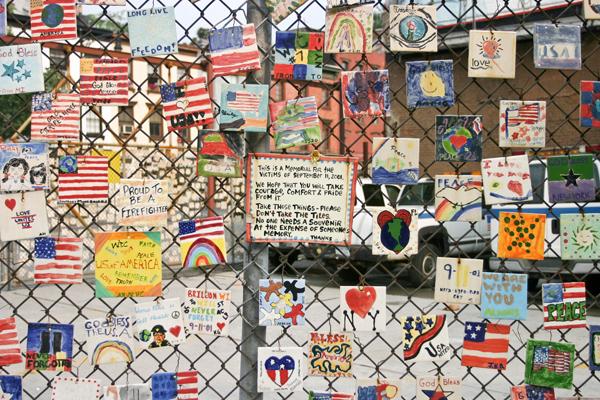What We Can Learn From The Resilience Of Trauma Survivors
Sept. 11 Monument in New York (Photo: David Iliff/Wiki Commons)
Sandro Galea, a public health professor at Columbia University, was one of the first scientists to study the psychological impact of 9/11 on New Yorkers. Early on, he made a surprising finding.
While most New Yorkers were understandably anxious in the days after the terrorist attacks, only a minority went on to develop debilitating psychological problems like post-traumatic stress disorder.
“Even among people who were in the towers and who were trying to escape or got injured, the risk of PTSD was still in the minority,” says Galea.
He says it was an “aha” moment for him.
“Human beings are incredibly adaptive and incredibly resilient,” he says. “Even in the face of a dramatic trauma, with horrendous circumstances, most people are still pulling through fine.”
By “pulling through fine,” Galea does not mean that people were not upset. Rather, they were able to function normally even if they had periods of great sadness.
Galea wanted to know: was this resilience unique to New Yorkers, or was it a more general human trait?
So he approached a colleague who had studied the psychological impacts of a devastating flood in Mexico. Torrential rains in 1999 killed more than 400 people and displaced over 200,000.
“Even in the flood sample, where the vast majority of participants are people who had lost homes or lost loved ones, it was still nearly half who qualified as being resilient,” says Galea.
Psychologists are just beginning to understand what makes some people resilient and others vulnerable.
Columbia University psychologist George Bonanno has spent years studying the factors that influence human resilience.
“There are some factors that are inherent in people — their personality and the way they cope — that does tend to make some people more resilient than others,” he says.
Genetics may influence resilience. Also, men tend to be more psychologically resilient than women, although it is not clear why.
Bonanno says external factors also play a role.
“If a person has economic difficulties, or doesn’t have much of a social support network or a network of friends and people to rely on, that person is going to be less likely to be resilient,” he says.
Bonanno hopes that this research will lead to helpful tools for encouraging resilience.
One factor that plays a key role in determining resilience is the presence or absence of chronic stress. In a recent study, Bonanno and his colleagues looked at the mental health of Palestinians living in Gaza and the West Bank.
To Bonanno’s surprise, he found almost no resilient individuals in that population. He says that’s because people there were living under chronically stressful conditions, including “lots of loss, lots of injury and exposure to violence on a regular basis, combined with poverty and all kind of other factors.”
“You combine all these factors together,” he says, “and you get a very, very caustic and chronic situation.”
Bonanno says chronic stress wears us out and prevents us from recovering from trauma.
Fortunately for New Yorkers, the terror of 9/11 has not been repeated in the past decade. That in no way reduces the horror of what they experienced, but it gave most New Yorkers the chance to recover and resume their daily lives.
